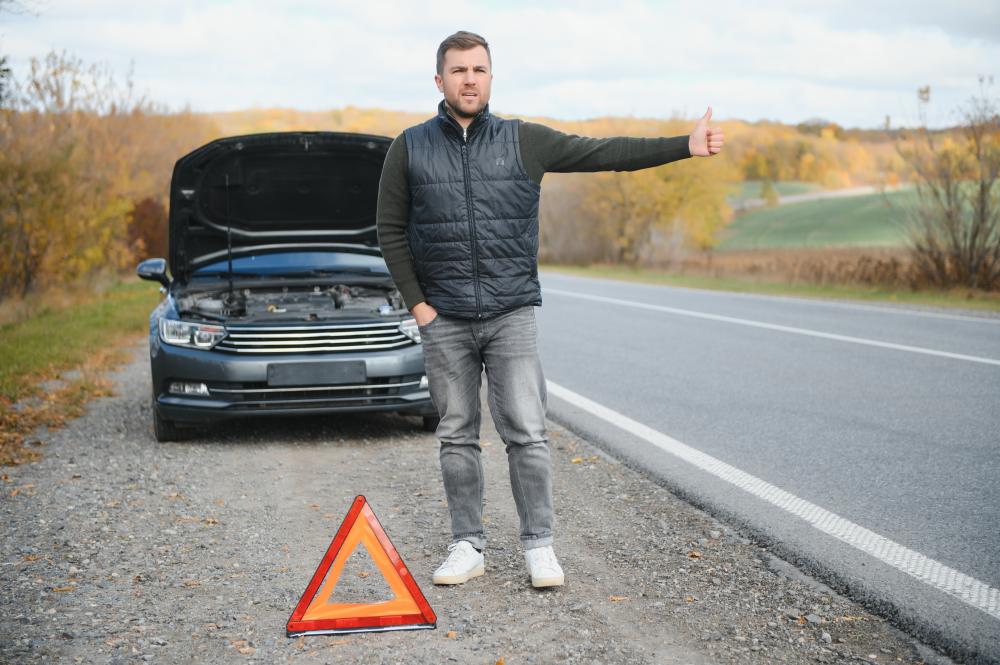Does The Lemon Law Apply To Used Cars

Understanding Lemon Laws
When you're in the market for a vehicle, the last thing anyone wishes for is to end up with a lemon--a car that has significant manufacturing defects affecting its safety, value, or utility. Most folks are familiar with lemon laws related to new cars, but confusion often arises around the question: does the lemon law apply to used cars? At Allen Stewart, P.C., we specialize in navigating the intricacies of lemon laws across various states and offer comprehensive support to those stuck with defective vehicles, including used ones.
Does the Lemon Law Apply to Used Cars?
Understanding the Basics
While lemon laws are primarily designed for new vehicles, some states extend these protections to used cars under specific conditions. However, the coverage and criteria vary significantly from one state to another. For instance, certain states may enforce lemon laws on used cars if they are under a certain age or mileage and come with a written warranty from the dealer.
The Importance of Written Warranties
A key factor that influences whether does the lemon law apply to used cars is the presence of a dealer-issued written warranty. Without this warranty, the chances of a used car being protected under lemon laws are slim. This is why it's crucial for buyers to seek vehicles that come with a substantial written warranty, ensuring an extra layer of protection against potential defects.
State-Specific Lemon Laws for Used Cars
Did you know that only a handful of states have lemon laws that explicitly cover used cars? If you're in a state like Massachusetts, New York, or Minnesota, you're in luck, as these jurisdictions have specific provisions for used vehicles. However, this is not the norm. In states where does the lemon law apply to used cars, the criteria can include the requirement for the vehicle to still be under its original manufacturer's warranty, or for the car to have been purchased with a certain period.
Your Rights as a Used Car Buyer
In jurisdictions where used cars are covered under lemon laws, consumers may be entitled to refunds or replacements if their vehicle meets the state's criteria for a lemon. This generally involves demonstrating that the car has a substantial defect covered under warranty that has not been fixed despite multiple repair attempts.
Colorado's Approach
For example, in Colorado, while the state's lemon law does not cover used cars directly, consumers can still find protection under warranty laws if the vehicle was sold with a dealer's warranty. This underscores the importance of understanding your rights and the specific laws in your state.
Finding Protection: Dealer Warranties and Certified Pre-Owned Programs
To navigate the uncertainty of whether does the lemon law apply to used cars, it's wise to consider vehicles sold with dealer warranties or as part of certified pre-owned (CPO) programs. These vehicles often undergo rigorous inspections and come with warranties that provide a level of protection similar to lemon laws for new cars. While you might pay more upfront for these vehicles, the peace of mind and potential savings on future repairs can be worth the investment.
Seeking Legal Support for Your Lemon
When to Reach Out
If you find yourself with a used car that you believe qualifies as a lemon, it's crucial to seek professional legal advice. At Allen Stewart, P.C., we have a dedicated team of attorneys experienced in lemon law cases. We can guide you through the process of documenting your case and negotiating with manufacturers or dealers to seek the compensation you deserve.
No Out-of-Pocket Costs
One of the unique aspects of our firm is our approach to fees. We understand that dealing with a lemon vehicle is stressful enough, so our attorneys work on a contingency basis. This means that any legal fees are covered as part of your settlement or judgment against the manufacturer, allowing you to pursue your case without worrying about upfront costs.
Final Thoughts
The question of does the lemon law apply to used cars is complex and heavily dependent on state laws and specific circumstances. However, by understanding your rights and seeking vehicles with warranties, you can better protect yourself from ending up with a lemon. At Allen Stewart, P.C., our passion is advocating for consumers who have been wronged by defective vehicles, whether new or used. If you're struggling with a potential lemon, don't hesitate to reach out for assistance.
Contact Allen Stewart, P.C.
Dealing with a lemon can be a frustrating experience, but you don't have to navigate it alone. If you're facing issues with a defective vehicle, contact Allen Stewart, P.C. today. Our experienced legal team is ready to advocate on your behalf and help you explore your options for seeking justice and compensation. Let us take on the stress of dealing with manufacturers and dealers, so you can focus on moving forward with your life.

What qualifies for lemon law in Indiana?
Under Indiana's lemon law, a vehicle is considered a lemon if it has a significant defect that is not fixed after a reasonable number of repair attempts, usually four, within the first 18 months or 18,000 miles, whichever comes first. This law primarily applies to new vehicles, but under specific circumstances, can apply to used vehicles still under the manufacturer's original warranty. Let's say you've bought a used car that's still within this period, and you're experiencing recurring problems that just can't seem to be fixed. In that scenario, you might have a lemon on your hands. Keep in mind, the presence of a warranty plays a crucial role here, highlighting the importance of understanding the warranty details when purchasing a used vehicle.
What qualifies as a lemon car in Washington state?
In the picturesque state of Washington, a car may be deemed a lemon if it suffers from a significant defect that substantially impairs its use, value, or safety and which has not been adequately repaired after a reasonable number of attempts, typically two to four, depending on the defect's nature. This definition is a bit more flexible than some other states', allowing for a degree of interpretation. It's worth noting that Washington's lemon law covers new vehicles, including motorcycles and motor homes, and used vehicles that are still under the manufacturer's original warranty. Imagine you're cruising down the Pacific Coast, but your recently purchased car keeps giving you the same problem, despite multiple repair attempts. This situation could potentially qualify under the lemon law, provided the vehicle is still under warranty. It highlights the importance of a keen eye and persistence when facing vehicle issues.
Is there a Michigan lemon law for used cars?
Michigan's lemon law is squarely focused on new vehicles, offering protection for cars that exhibit defects within the first year of ownership or the warranty period, whichever comes first. However, when it comes to used cars, the waters get a bit murkier. There isn't a specific lemon law for used cars in Michigan, but don't let that dishearten you. Consumers might still find protection under implied warranties or through the Magnuson-Moss Warranty Act, which could provide a recourse for those who've purchased a used lemon. It's like navigating a complex maze, but with the right knowledge and guidance, finding a path to resolution is possible. Remember, understanding the warranty and repair history of a used car before purchase can be your best defense.
What qualifies for California lemon law?
California's lemon law is one of the most robust in the United States, providing protection not only for new but also for used vehicles that are covered under a manufacturer's warranty. To qualify as a lemon in California, a vehicle must have a substantial defect that has not been fixed after a reasonable number of repair attempts - usually two or more for safety-related issues and at least four for other significant defects - or if the vehicle has been in the shop for more than 30 calendar days for repair of warranty problems within the first 18 months or 18,000 miles. This law also applies to leased vehicles. Imagine you're driving through the bustling streets of Los Angeles or the serene landscapes of Napa Valley, and your vehicle consistently fails you. If it's under warranty, California's lemon law might very well be your best friend, offering a pathway to a refund or replacement.
Do lemon laws apply to certified pre-owned vehicles?
Certified Pre-Owned (CPO) vehicles occupy a unique space where they are often considered a safer bet than typical used vehicles due to undergoing rigorous inspections and coming with a warranty. While lemon laws predominantly cover new vehicles, a CPO vehicle could still fall under these protections if it's under the original manufacturer's warranty. It's an area where the blend of new and used car benefits can sometimes confuse buyers. Let's say you've bought a CPO vehicle, reveling in the near-new condition and warranty assurances, but then encounter a persistent defect. In this case, the original manufacturer's warranty is your shield, potentially invoking lemon law protections. This scenario underlines the importance of thoroughly understanding the warranty coverage of a CPO vehicle.
How important is a warranty when buying a used car?
A warranty on a used car acts much like a safety net, offering protection against unforeseen repair costs for a specified period. The presence or absence of a warranty can significantly influence your rights and protections under the lemon law, depending on your state. If you're considering a used car without a warranty, it's akin to walking a tightrope without a safety net. Unanticipated issues could leave you stranded with hefty repair bills. Conversely, a warranty can afford you peace of mind, knowing that certain defects will be repaired at no extra cost to you. It's essential to weigh the warranty's scope and length against the car's age, mileage, and your expected tenure with the vehicle. Sometimes, the decision to opt for a car with a warranty could save you from a potential financial pitfall.
When should you seek legal support for lemon issues?
Navigating lemon law claims can be as tricky as finding your way through a labyrinth. If you suspect your vehicle is a lemon, reaching out for legal support sooner rather than later can make a significant difference. This is especially true if you've made multiple unsuccessful repair attempts, or if your vehicle has spent an excessive amount of time in service for warranty repairs. Legal experts, like us here at Allen Stewart, P.C., can provide guidance on whether your situation qualifies under lemon law and help outline the best course of action. It's not just about the potential for refunds or replacements; it's about asserting your rights and ensuring manufacturers uphold their obligations. Remember, when it comes to lemon laws, being proactive rather than reactive can be key to steering your case towards a favorable outcome.
Resources
- Federal Trade Commission - Buying a Used Car - Learn about your rights and protections when buying a used car from the Federal Trade Commission.
- FindLaw - Find legal information, attorneys, and resources related to lemon laws and consumer protection.
- Nolo - Access legal articles and resources on lemon laws, warranties, and consumer rights from Nolo.
- Edmunds - Get expert advice on buying used cars, warranties, and vehicle inspections from Edmunds.
